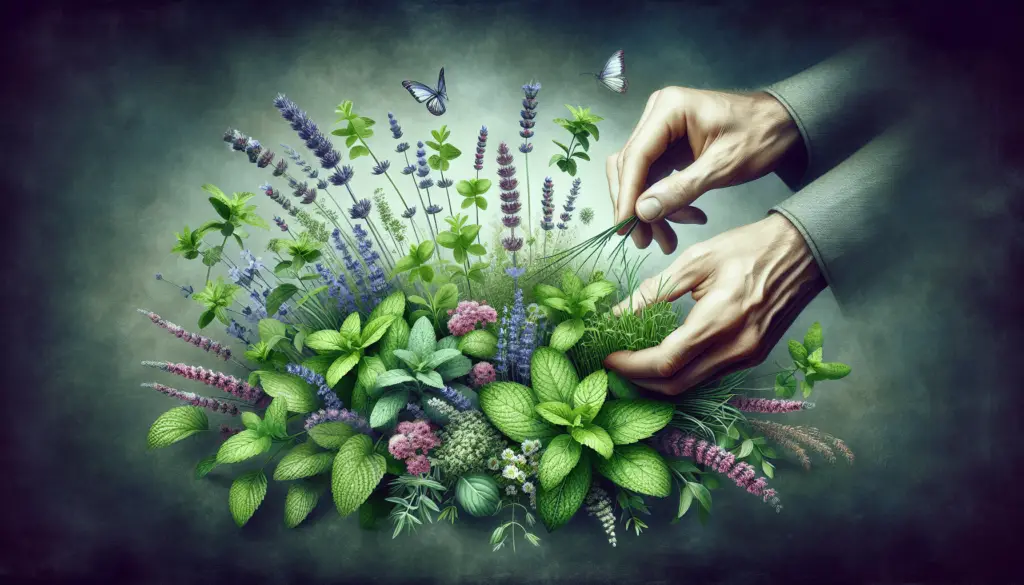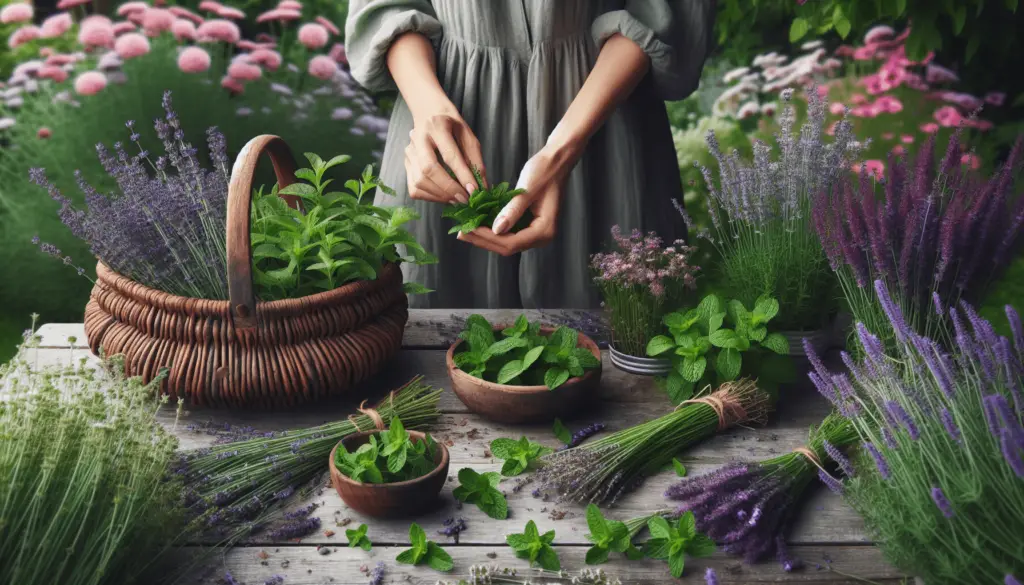Are you interested in exploring natural remedies for common ailments right in your own backyard? Well, you’re in luck! In this article, we will delve into the world of crafting effective herbal remedies from your garden. From growing and harvesting herbs to creating powerful concoctions, we’ve got you covered. Let’s get started!

Getting Started: Growing Your Herbal Garden
Growing your own herbal garden is a rewarding and cost-effective way to ensure a fresh supply of ingredients for your remedies. Choose a sunny spot in your garden with well-drained soil to plant your herbs. Some popular herbs to consider growing include lavender, rosemary, mint, and chamomile. Remember to water regularly and trim your herbs to encourage growth.
Planting Tips
When planting your herbs, make sure to give them enough space to spread out and thrive. Be mindful of companion planting to maximize growth and keep pests away. For example, planting basil near tomatoes can improve their flavor and deter pests. Research each herb’s specific needs for water, sunlight, and soil to ensure they thrive in your garden.
Harvesting Herbs for Maximum Potency
Harvesting your herbs at the right time is crucial to ensure maximum potency in your remedies. Most herbs are best harvested in the morning after the dew has dried but before the sun gets too strong. Use sharp scissors or pruning shears to cut the stems above a leaf node to encourage new growth. Be sure to only harvest one-third of the plant at a time to allow it to recover and continue producing.
Drying and Storing Tips
To preserve the potency of your herbs, it’s important to dry them properly before storing. Hang your herbs in small bundles in a dry, well-ventilated area away from direct sunlight. Once dried, store your herbs in airtight containers in a cool, dark place to maintain their freshness and potency. Label each container with the herb name and date of harvest for easy identification.
Crafting Herbal Remedies: Simple Recipes to Try
Now that you have a bountiful supply of fresh herbs from your garden, it’s time to start crafting your own herbal remedies. Below are some simple recipes to get you started:
Lavender Relaxation Tea
Ingredients:
- 1 tablespoon dried lavender flowers
- 1 cup hot water
- Honey (optional)
Instructions:
- Place dried lavender flowers in a teapot or mug.
- Pour hot water over the flowers and let steep for 5-10 minutes.
- Strain the tea, add honey to taste, and enjoy a calming cup of lavender relaxation tea.
This soothing tea is perfect for unwinding after a long day and promoting relaxation before bedtime.
Rosemary Infused Oil
Ingredients:
- Fresh rosemary sprigs
- Olive oil
Instructions:
- Fill a jar with fresh rosemary sprigs.
- Cover the rosemary with olive oil, ensuring all the herbs are submerged.
- Seal the jar and let it sit in a sunny spot for 2-3 weeks to infuse.
- Strain the oil and use it for massages or as a hair treatment for added shine and strength.
This aromatic oil is great for nourishing your skin and hair while enjoying the natural scent of rosemary.
Peppermint Headache Salve
Ingredients:
- 1/2 cup fresh peppermint leaves
- 1/4 cup coconut oil
- Beeswax pellets
Instructions:
- Melt coconut oil and beeswax in a double boiler.
- Add fresh peppermint leaves and let simmer for 20 minutes.
- Strain the mixture and pour into a jar to solidify.
- Apply the peppermint headache salve to your temples for natural headache relief.
This soothing salve provides a cooling sensation and helps alleviate tension headaches without relying on chemicals.
Safety Precautions: Using Herbal Remedies Responsibly
While herbal remedies can offer natural and effective solutions to common ailments, it’s important to use them responsibly. Always research the herbs you plan to use and consult a healthcare professional if you have any concerns. Keep in mind the following safety precautions when using herbal remedies:
Dosage Guidelines
Follow recommended dosage guidelines for each herb to avoid adverse effects. Start with a small amount and gradually increase if needed. Keep track of how your body responds to the remedy and adjust accordingly.
Allergies and Interactions
Be aware of any allergies you may have to specific herbs and check for potential interactions with medications you are currently taking. Some herbs may worsen certain medical conditions or interact negatively with prescription drugs.
Pregnancy and Children
Exercise caution when using herbal remedies during pregnancy or on young children. Some herbs may have adverse effects on fetal development or be too potent for young bodies. Always consult a healthcare provider before administering herbal remedies in these cases.

Final Thoughts: Embracing the Power of Herbal Remedies
Congratulations, you have taken the first steps towards crafting effective herbal remedies from your garden! By growing and harvesting your own herbs, you have access to a natural and sustainable source of healing. With the right knowledge and precautions, you can create a range of remedies to address common ailments and promote overall well-being. Remember to experiment, have fun, and continue expanding your herbal knowledge. Your garden is a treasure trove of powerful remedies waiting to be discovered. Happy crafting!
